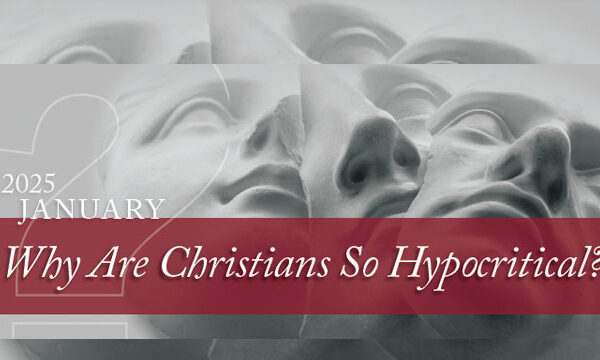Back to series
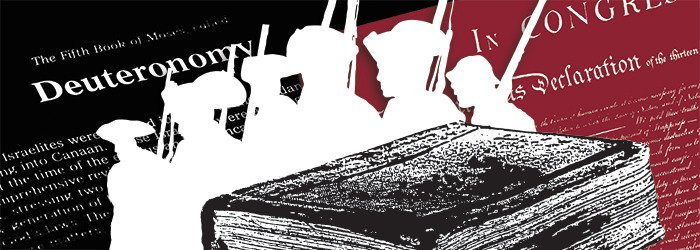


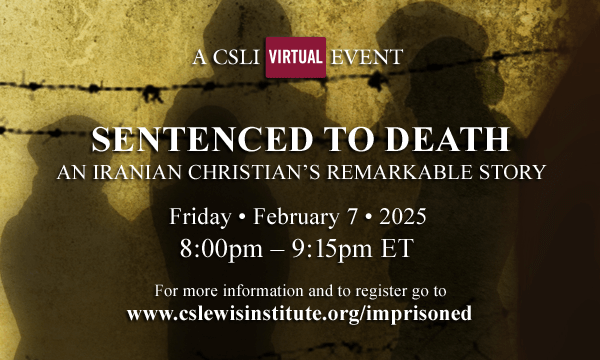
The Bible and the American Founders
VOLUME 3 NUMBER 3 ISSUE OF BROADCAST TALKS (PDF)
BROADCAST TALKS presents ideas to cultivate Christ-like thinking and living. Each issue features a transcription of a talk presented at an event of The C. S. Lewis Institute. The following is adapted from a talk entitled The Bible and the American Founders delivered on May 19, 2017, at McLean Presbyterian Church, McLean, Virginia, sponsored by the C.S. Lewis Institute.
I want to speak this evening a little bit about religion and politics in American history. And I want to turn our attention to the Bible in particular and its role in the American founding era. I’m speaking here of the last third or so of the eighteenth century. This is a time when Americans began to agitate for their rights as Englishmen; failing to persuade king and parliament that they were entitled to their rights, they began to fight for independence. Then, having secured independence, the truly difficult task lay ahead of them, which was establishing a new republic once they had achieved liberty. And so when I speak of the founding era, I am referring to this time period in America history.
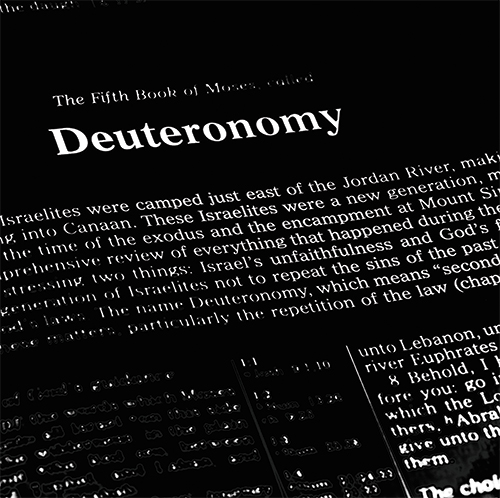 The founding fathers read the Bible. Their many quotations from and allusions to both familiar and obscure scriptural passages tell us that they knew the Bible well; they knew the Bible from cover to cover. Biblical language and themes liberally seasoned their rhetoric; the phrases and the cadences of the King James Bible, especially, informed their written and spoken words. The ideas of the Bible shaped their habits of mind and informed their political pursuits. The Bible was the most accessible and authoritative text for eighteenth-century Americans. We know this, for example, by looking at probate records, the records, the catalogs, of what people left behind when they died, and they reveal that if a family owned a single book it was almost certainly going to be the Bible. So this was the one book that Americans would be most familiar with.
The founding fathers read the Bible. Their many quotations from and allusions to both familiar and obscure scriptural passages tell us that they knew the Bible well; they knew the Bible from cover to cover. Biblical language and themes liberally seasoned their rhetoric; the phrases and the cadences of the King James Bible, especially, informed their written and spoken words. The ideas of the Bible shaped their habits of mind and informed their political pursuits. The Bible was the most accessible and authoritative text for eighteenth-century Americans. We know this, for example, by looking at probate records, the records, the catalogs, of what people left behind when they died, and they reveal that if a family owned a single book it was almost certainly going to be the Bible. So this was the one book that Americans would be most familiar with.
So it shouldn’t surprise us that effective communicators, especially politicians and polemicists, would invoke biblical language in an effort to connect with their audiences. And it is in fact significant that both Christians as well as skeptics among the founders would have appealed to Scripture in their rhetoric, in their political discourse. And this includes American founders who were, as I say, skeptical of the transcendent claims of Scripture, including many founders who would have doubted the divine origins of Scripture. They too would have appealed to the Bible.
In a now-famous study published in the American Political Science Review, which is the flagship publication for political scientists, a political scientist by the name of Donald Lutz surveyed the political literature of the American founding. He was looking to see who it was that Americans were citing in this political literature. He reports that the Bible was cited more frequently than any European writer or even any European school of thought, such as Enlightenment liberalism. The Bible, Lutz reported, accounted for approximately one-third of the citations in the literature he surveyed. The book of Deuteronomy alone was the most frequently cited work, followed by Montesquieu’s The Spirit of the Laws. In fact, Deuteronomy was referenced nearly twice as often as John Locke’s writings, and the apostle Paul was mentioned about as frequently as Montesquieu and Blackstone, who would have been the two most-cited secular theorists.
Just as an aside, I want to reflect for a moment on why Deuteronomy looms so large in this literature. I think there are several reasons. One reason is because the book of Deuteronomy in a sense is a digest of the books of Moses. It is a condensed version of the preceding four books of the Pentateuch. And we know from history that the books of Moses had exerted a tremendous influence on colonists, going right back to the Pilgrims and the Puritans. So it’s not going to surprise us that this is a part of Scripture that Americans would have been very familiar with. And here they find it in a condensed version in the book of Deuteronomy.
This is also a book that records God’s dealings with the chosen nation, especially in establishing the political and legal institutions necessary to govern a nation. Now we can find texts in the New Testament that deal with government. Think Romans 13, for example, and it gives us a sense of the duties of citizenship and the like. But what we find in the books of Moses and in that condensed version in Deuteronomy is the nuts and bolts of how do you make and how do you establish a nation. Remember, this is the story of the children of Israel who leave Egypt, and all the responsibilities of government fall on the shoulders of one man, Moses. So there’s this tremendous challenge of how do you create a political society. Americans thought that they read in a book like Deuteronomy a guide on how to put a nation together, and so it would have been appealing to them for that reason.
It’s also appealing to Americans because they read in the books of Moses a story of God’s dealings with a chosen nation, with a chosen people. And of course there would have been many Americans who saw their own situation as analogous to that of the children of Israel. After all, they too had fled a tyrant. The children of Israel had fled from Pharaoh; they are fleeing from George III. Like the children of Israel, they had crossed a Red Sea, known as the Atlantic Ocean. They too had encountered forbidding territory in the rocky coasts of New England. They too had met their Philistines, the Moabites, those native peoples they encountered in the new world. And so they saw in the books of Moses and as recorded in Deuteronomy a story, a narrative that was analogous they believed to their own. So I think this begins to help us understand why they’re drawn to the book of Deuteronomy.
 But let me just say very quickly here that this is by no means the only source, the only biblical text that the American founding generation is drawn to. They were drawn to New Testament texts that deal with the responsibilities and duties of civil authority and the duties of citizenship such as Romans 13 or 1 Peter 2:13–14. They were drawn to both Old Testament and New Testament texts dealing with liberty and liberation. They were drawn to the Exodus narrative because, after all, it’s a story about liberation, and they too are in pursuit of liberty and liberation. They’re drawn to texts in the New Testament that speak of liberty. Verses such as Galatians 5:1, “Stand fast therefore in the liberty wherewith Christ hath made us free.” This was a very attractive text to Americans of the founding era.
But let me just say very quickly here that this is by no means the only source, the only biblical text that the American founding generation is drawn to. They were drawn to New Testament texts that deal with the responsibilities and duties of civil authority and the duties of citizenship such as Romans 13 or 1 Peter 2:13–14. They were drawn to both Old Testament and New Testament texts dealing with liberty and liberation. They were drawn to the Exodus narrative because, after all, it’s a story about liberation, and they too are in pursuit of liberty and liberation. They’re drawn to texts in the New Testament that speak of liberty. Verses such as Galatians 5:1, “Stand fast therefore in the liberty wherewith Christ hath made us free.” This was a very attractive text to Americans of the founding era.
They loved Old Testament texts dealing with the idea of covenant, so they were drawn to passages such as Leviticus 26 or Deuteronomy 28. They were also drawn to texts that describe the character and characteristics and, I might add, the blessings of a righteous ruler. Here I’m thinking of verses such as Proverbs 29:2 or Exodus 18:21 or 2 Samuel 23. You may recall that last text is David’s dying declaration, his deathbed declaration where he speaks of what you should look for in a ruler. And so, again, Americans of this era are drawn to texts such as these.
Let me pose a few questions here. Are the many references to Christianity’s sacred texts that we find in the political discourse of the founding merely rhetorical ornaments, without substantive significance? Should students of the founding be attentive to the Bible’s influence on the political and legal developments of this period? In other words, did the founders use the Bible in ways that mattered?
One can acknowledge, and it’s hard to dispute this, that the founding generation quoted the Bible over and over again, but you can still concede that point and doubt that it had a significant substantive influence. So one of the questions I want to explore this evening is: Is the Bible being used by the founding generation in a way that matters, that matters to the political and legal project that they find themselves in?
I want to suggest to you that simply counting and documenting the founders’ many references to the Bible tells us little except that the Bible was a familiar and useful literary resource for this generation. In my book Reading the Bible with the Founding Fathers, I try to move beyond the observation that the founders frequently cited the Bible; that’s certainly true. What I want to do is look at, try to ascertain, whether they’re using the Bible in ways that influenced the founding project. If so, which biblical texts appealed to these Americans and why? Why did they think these texts were pertinent to them in the particular predicament, the particular time they found themselves in?
A study of the founding generation’s uses of the sacred text must be attentive to the purposes for which Americans invoked the Bible and not merely to the fact that they referenced it, cited it, quoted it. The founders used the Bible for a variety of reasons. These are reasons ranging from the primarily literary and rhetorical to the profoundly theological. The Bible was used then as it is used now, to enrich a common language and a cultural vocabulary through distinctively biblical allusions, phrases, figures of speech, proverbs, aphorisms, and the like. The Bible was used to enhance the power and the weight of rhetoric through its identification with a venerated, authoritative, sacred text.
They also used the Bible to identify and define normative standards and transcendent rules for ordering and judging public life. They used the Bible to marshal biblical authority and support specific political agenda and policy objectives. Finally, and I think there are other reasons, but one last reason that they used the Bible is to gain insights into the character and designs of God, especially as they pertain to God’s providential oversight of the material world and, more specifically, God’s dealings with men and nations. I think it’s important to recognize these distinct uses of the Bible insofar as it’s misleading to read spiritual meaning into literary, rhetorical, or political uses of the Bible or to do the opposite. So we’ve got to be very careful and understand why in a particular context an individual of this generation was using the Bible.
In my book I go through and illustrate, using some very familiar rhetoric that you’ll be familiar with, how the Bible is used in each of these different ways.
I think it’s regrettable that there is a tendency among scholars today to discount or even dismiss the influence of the Bible on the founders and on the founding era. I want to challenge that particular view of the founding and of American history, and I want to suggest that the Bible in fact played a significant part in that last third or so of the eighteenth century.
The founding generation during that time drew on diverse intellectual traditions informing its political thought. My claim here today is not that the Bible is the sole source of influence but is certainly among the influences that the founding generation has drawn upon. Three very prominent sources of influence we should acknowledge include (1) British constitutionalism and the common law. I note here the Magna Carta. The great English jurist William Blackstone is illustrative of this influence. There is also the influence of (2) the Enlightenment; we certainly must acknowledge that. John Locke and Montesquieu are just two of many examples. And the Enlightenment is expressing itself through a variety of schools of thought, so there’s a variety of different expressions of Enlightenment thought that American intellectuals are reading, including those figures that we call the founding fathers. There’s also the influence of (3) classical and civic republicanism. I’m referring here to classical republicanism of the ancients, so we might refer to someone like a Cicero, for example, but I also have in mind more modern republicans.
The thesis that I want to advance this evening and the thesis I advance in my book is that the Bible, both the Hebraic and the Christian traditions must be studied alongside these other perspectives if we want to truly understand the ideas that inspired and informed the founding of the American constitutional republic and our great political experiment in republican self-government.
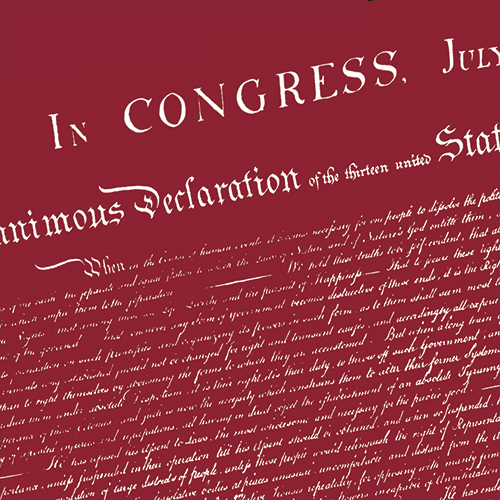 Interestingly, George Washington identified the Bible among the significant contributions to the American experience. He once remarked that the foundation of the American empire was laid at a near-perfect moment, we might even say a providential moment, in human history. This comes in an interesting letter he wrote in 1783, with a passage where he tries to back this up by talking about the variety of developments that might characterize the late eighteenth century. He says this is a time when learning and science is greater than it’s ever been before, our knowledge and understanding of the humanities is greater than ever been before, but it’s very interesting to see how he brings that thought to a conclusion. He writes, “The foundation of our empire was not laid in the gloomy age of ignorance and superstition but in an epoch when, above all, the pure and benign light of revelation [by which he meant the Bible] had had ameliorating influence on mankind and increased the blessings of society.” So at the end of this long train of developments that he sees as being unique to this moment in history, that has made this a most propitious time for the foundation of a new nation, he says above all this is a time when the Bible has had a tremendous influence.
Interestingly, George Washington identified the Bible among the significant contributions to the American experience. He once remarked that the foundation of the American empire was laid at a near-perfect moment, we might even say a providential moment, in human history. This comes in an interesting letter he wrote in 1783, with a passage where he tries to back this up by talking about the variety of developments that might characterize the late eighteenth century. He says this is a time when learning and science is greater than it’s ever been before, our knowledge and understanding of the humanities is greater than ever been before, but it’s very interesting to see how he brings that thought to a conclusion. He writes, “The foundation of our empire was not laid in the gloomy age of ignorance and superstition but in an epoch when, above all, the pure and benign light of revelation [by which he meant the Bible] had had ameliorating influence on mankind and increased the blessings of society.” So at the end of this long train of developments that he sees as being unique to this moment in history, that has made this a most propitious time for the foundation of a new nation, he says above all this is a time when the Bible has had a tremendous influence.
How did the Bible inform the founders’ political and legal pursuits? I want to get a little bit more specific here. As I’ve already said, the founders held diverse views, including diverse theological views. Some doubted Christianity’s transcendent claims. Some doubted the Bible’s divine origins. But I’m going to suggest to you that many in this generation looked to the Scriptures for insights into things like human nature, civic virtue, social order, political authority, and other concepts essential to the establishment of a political society. Perhaps more important, there was broad agreement that the Bible was essential for nurturing the kind of civic virtues that give citizens the capacity for self-government. In various conventions and representative assemblies of the age as well as in pamphlets, political sermons, and private papers, founding figures appealed to the Bible for principles, precedents, models, normative standards, and cultural motifs, to define their community and to order their great political experiments. The Bible, some thought, offered guidance on how to select righteous leaders. They thought the Bible offered guidance on the rights and responsibilities of citizenship, including the right to resist a tyrannical government. So let me suggest in some very specific ways how the founding generation drew on Scripture in framing a political order in American constitutional tradition.
First, I am going to suggest that the general theological or doctrinal propositions regarding human nature, civil authority, politics, and the like informed conceptions and institutions of law in civil government. For example, the Judeo-Christian concept of covenant arguably informed ideas of compact, contract, and constitutionalism. As I mentioned earlier, the founders were drawn to texts like Leviticus 26 and Deuteronomy 28, which lay out the covenant relationship between the children of Israel and God, because they thought perhaps there was something here to be learned in their own moment and in their own development of a new nation. The doctrine of original sin and humankind’s radical depravity, this they learned from Genesis chapter three, prompted the founders to design a constitutional system that would prevent the abuse of power and check the abuse of power vested in fallen human agents.
I don’t think you can understand the most basic, fundamental features of the American constitutional design—and by that I have in mind things like limited government, separation of powers, checks and balances, federalism, rule of law, due process of law and representative government—without understanding this biblical anthropology, this idea that man is a fallen creature, and where power is given, that power must be checked. Oaths of office required in many state constitutions and statutes in the founding era were often explicitly premised on a belief in a future state of rewards and punishments. That phrase future state of rewards and punishments shows up in constitution after constitution in the founding era. What is this? It’s a recognition of a heaven and a hell.
Second, the founding generation saw in the Bible political and legal models that they sought to incorporate into their political and legal systems. One examples they saw is a model of republicanism. Americans believed that the Hebrew commonwealth described in the Old Testament provided a model for republican government. They also saw a model for due process of law, the principles of due process, by which we mean procedural fairness and equality of all persons before the law that’s explicitly guaranteed in the United States Constitution in the Fifth and the Fourteenth Amendments, are sprinkled throughout the laws of Moses, most especially in Exodus 23, the first nine verses. This for centuries has been called the Ten Commandments of Due Process. There are ideas, principles of due process, that they want to emulate in the political and legal institutions that they are building at the end of the eighteenth century.
To elaborate on the model of republicanism, more broadly and more generally speaking many founders thought the Bible was essential, absolutely essential, to their constitutional experiment in republican self-government. To the founders, small-r republicanism, which is what I’m referring to here, meant this at least. Republicanism meant popular government committed to the rule of law in which government authority is derived from the consent of the people, consent of the governed and exercised through representatives freely and fairly chosen by the people. That’s what republicanism meant to this generation.
I want to draw your attention to an extraordinary turn of phrase that I encountered on multiple occasions in my research for this book. And I’m going to give you two examples. The first comes from John Adams, who said, “The Bible is the most republican book in the world.” And again, he’s not alone among his contemporaries in making this claim. We find, for example, John Dickenson, sadly a forgotten figure but an important founding figure sometimes called the Penman of the Revolution. He similarly said, “The Bible is the most republican book that ever was written.” And they’re not alone in their generation in making such an extraordinary statement. This is a sentiment common in the political discourse of the age.
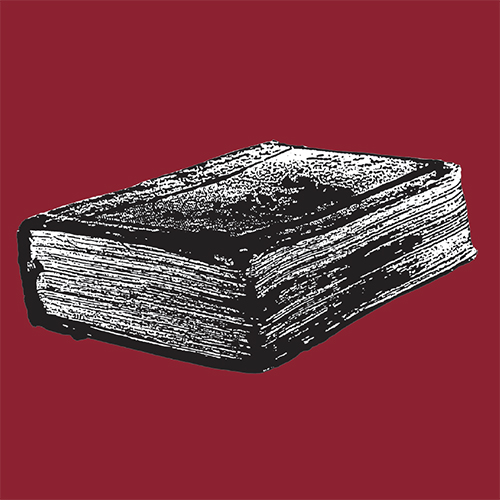 Historian James Hudson has described the essential connection among religion, virtue, and republican self-government. He’s described this as the founding generation’s syllogism. And this is how it goes. He says in the mind of the founding generation, they believed that “virtue and morality are necessary for free republican government. Religion is necessary for virtue and morality. Therefore, religion is necessary for republican government.”
Historian James Hudson has described the essential connection among religion, virtue, and republican self-government. He’s described this as the founding generation’s syllogism. And this is how it goes. He says in the mind of the founding generation, they believed that “virtue and morality are necessary for free republican government. Religion is necessary for virtue and morality. Therefore, religion is necessary for republican government.”
Now let’s go back to that John Adams quote about the Bible being the most republican book. Let’s put it in a bit more context. Believing that without national morality a republican government cannot be maintained and that the Bible contains the most perfect morality and the most refined policies ever conceived upon the earth, John Adams described the Bible as the most republican book in the world. It’s republican in other words because the Bible nurtures the civic virtues that are essential for a republican regime to succeed.
Let me conclude with this question: Does it matter whether we acknowledge the Bible’s contributions to the founding, and does it matter whether the Bible is studied along with these other intellectual influences mentioned this evening? Yes, I think it’s worth preserving or in some cases recovering our civic history. We see all around us efforts to dismiss or to discount that history and replace it with a strictly secular narrative, a narrative that diminishes the place of religion, that diminishes people and communities of faith, that discounts faith-based ideas in American history. How often, for example, have you heard the American Founding was a strictly Enlightenment project? Or I suspect we’ve all heard the founders were all deists, right? That’s a pretty common one. Or you might have even heard this: The Constitution is a godless, strictly secular document. There was a rather popular book written a few years ago called The Godless Constitution, making this very claim. I think each of these assertions will not stand up to careful scrutiny. We have to acknowledge this role that faith and in particularly the Bible is playing in this founding project.
Yes, I think it matters if one wants to understand the broad range of ideas that shaped the founders’ political thoughts, their actions, their deeds. An awareness of the Bible’s contributions to the founding provides insights into the identity of the American people on their experiment in self-government. Indeed, the widespread biblical illiteracy of our own age inevitably distorts the conception Americans have of themselves as a people, their history, and their political experiment.
I think this is why it matters. This danger alone—that in our biblical illiteracy we’ll lose sense of who we are, where we’ve come from—this danger alone should inspire us to study the Bible in its role in the life of our nation.
From the Puritan fathers, Americans looked to the Bible for guiding principles on political order, civil authority, civic virtue, responsible citizenship, and other features that are a part of a well-ordered political society. The framers drew on diverse political and legal traditions in crafting a constitutional republic. One of the most important but least studied sources of influence on our political culture, and our constitutional tradition, is the Bible. The Constitution contains many features in both content and design familiar to a Bible-reading people, and we cannot understand adequately our constitutional tradition or the historic events that produced our great political experiment in republican self-government and liberty under law without studying, without referencing, the Bible.
So let me urge you to read and study the Constitution. Read and study other expressions of our founding principles. And to better understand the Constitution, read your Bible.
[Videos of this talk (unedited) and Q&A are available Here. Additional information about this topic is included in Daniel Dreisbach’s book Reading the Bible with the Founding Fathers (Oxford: Oxford University Press, 2017).]


Daniel Dreisbach
ProfessorDaniel Dreisbach, Professor of Justice, Law & Criminology at American University. He earned a DPhil from Oxford University, where he studied as a Rhodes Scholar, and a JD from the University of Virginia. His principal research interests include American constitutional law and history, First Amendment law, church-state relations, and criminal procedure. He has authored or edited ten books and numerous articles in scholarly journals. Professor Dreisbach is a past recipient of American University’s highest faculty award: Scholar/Teacher of the Year.

 COPYRIGHT: This publication is published by C.S. Lewis Institute; 8001 Braddock Road, Suite 301; Springfield, VA 22151. Portions of the publication may be reproduced for noncommercial, local church or ministry use without prior permission. Electronic copies of the PDF files may be duplicated and transmitted via e-mail for personal and church use. Articles may not be modified without prior written permission of the Institute. For questions, contact the Institute: 703.914.5602 or email us.
COPYRIGHT: This publication is published by C.S. Lewis Institute; 8001 Braddock Road, Suite 301; Springfield, VA 22151. Portions of the publication may be reproduced for noncommercial, local church or ministry use without prior permission. Electronic copies of the PDF files may be duplicated and transmitted via e-mail for personal and church use. Articles may not be modified without prior written permission of the Institute. For questions, contact the Institute: 703.914.5602 or email us.
-
Recent Podcasts
From Anti-Christian to Pastor – Brian Smith’s Story
by Jana Harmon, Brian Smith on January 17, 2025Brian grew up in a small Georgia town...Read More
-
Time With God
by Aimee Riegert, J.I. Packer on January 10, 2025
-
Faith and Reason – Henare Whaanga’s Story
by Henare Whaanga, Jana Harmon on January 3, 2025
-
Recent Publications
Why Are Christians So Hypocritical?
by Christopher L. Reese on January 1, 2025Oh, the hypocrisy of those Christians—they talk so...Read More
-
How Artists and Their Art Can Point Us to the Creator
by Russ Ramsey on December 2, 2024
-
What about Jesus’s Childhood?
by Jim Phillips on December 1, 2024
0
All Booked
0.00
All Booked
0.00
All Booked
23931
GLOBAL EVENT: Sentenced to Death with Maryam Rostampour-Keller, 8:00PM ET
https://www.cslewisinstitute.org/?event=global-event-sentenced-to-death-with-maryam-rostampour-keller-800pm-et&event_date=2025-02-07®=1
https://www.paypal.com/cgi-bin/webscr
2025-02-07

Next coming event
Days
Hours
Minutes
Seconds
GLOBAL EVENT: Sentenced to Death with Maryam Rostampour-Keller, 8:00PM ET
On February 7, 2025 at 8:00 pmCategories
Speakers

Daniel Dreisbach
Professor
Team Members

Daniel Dreisbach
ProfessorDaniel Dreisbach, Professor of Justice, Law & Criminology at American University. He earned a DPhil from Oxford University, where he studied as a Rhodes Scholar, and a JD from the University of Virginia. His principal research interests include American constitutional law and history, First Amendment law, church-state relations, and criminal procedure. He has authored or edited ten books and numerous articles in scholarly journals. Professor Dreisbach is a past recipient of American University’s highest faculty award: Scholar/Teacher of the Year.




